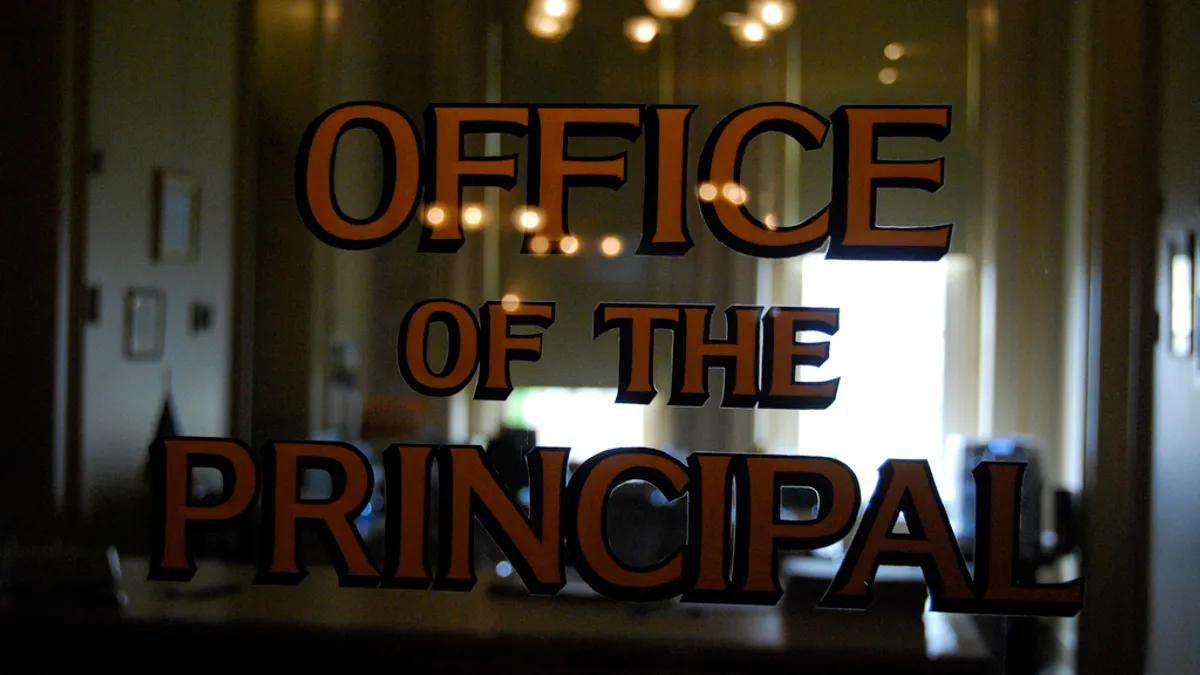With a shifting economy continuing to necessitate a move away from the industrial, one-size-fits-all model of the past century-plus, K-12 education is in the midst of a sea change. Guiding the ship through that change is a vast number of innovative superintendents, principals and other administrators nationwide too numerous to list in a single post.
These six school and district leaders represent a solid sample of the issues schools and districts are facing and the efforts to guide them into the 21st century — from classroom tech implementation and the utilization of social media for professional learning to lingering problems like raising graduation rates and decreasing segregation. While there are certainly more administrators to watch and learn from, this group is a great place to start.
Glenn Robbins, Tabernacle School District (NJ)
Now a superintendent, the former Northfield Community Middle School principal is a rising star among administrators. As a 2016 NASSP National Digital Principal of the Year, Robbins understands the impact technology can have on education. He has also been recognized with the 2016 SETDA Student Voice Award and 2015 MS Bammy Edu Voice Award. Equally important, he understands the power of great mentors, as reflected in remarks to Education Dive earlier this year.
In addition to his accolades, Robbins is something of a homegrown superintendent, having been quoted in the Pine Barrens Tribune as saying, "As a kid, I spent countless hours playing in the school’s sports field and returning to Tabernacle is truly a homecoming." Recent years have seen a trend toward districts working to nurture members of their current student populations to become future educators and administrators due to the deeper community understanding that brings to the table.
Michelle King, Los Angeles Unified School District
Speaking of homegrown superintendents, the Los Angeles Unified School District's superintendent is among a quarter of those in California's 20 largest districts. King is also the first African-American woman to lead the district, the nation's second-largest. And despite many positives, like progress on restorative justice, recent years have seen it navigate its share of rough waters.
Previously in the spotlight for a troubled iPad program that was initiated by King's predecessor and resulted in a federal investigation, the district's latest headline-grabbing issue involves questions around the legitimacy of a record 75% graduation rate. Having revised its standards for the credit recovery program that helped achieve those numbers, LAUSD is hopefully now in the clear.
One big thing to watch this year: How the district, under King's leadership, takes advantage of now-legal dual-language education following a November voter referendum. King and LAUSD, alongside other California administrators and districts, are in prime position to define what a quality education looks like under that model.
Darren Ellwein, Harrisburg South Middle School (SD)
One of the NASSP's 2017 Digital Principals of the Year, Ellwein has gained recognition over his near-decade as a principal for his recognition of technology's potential for both students and teachers. He encourages teachers to interact with parents via Twitter (which, as Education Dive readers know, is also effective for creating professional learning networks), he's implemented Google Docs and Google Hangouts in his school, and he's championed a Drone Club, Twitter Tuesdays and weekly makerspace "Genius Hours."
As schools continue utilizing more tech and giving STEM a larger place in curriculum amid a push toward "School 2.0," Ellwein will be worth watching.
Carmen Fariña, New York City Department of Education
As the chancellor of the nation's largest school district, Fariña is arguably the nation's most-visible local-level administrator. As Newsweek reported in August to hammer home the scope of her job, only nine American cities have populations that aren't outnumbered by the New York City's 1.1 million students. She, like Los Angeles' King, is also among a number of "traditional" educators who have replaced more reform-movement-minded administrators in major cities following questionable progress.
In recent years, the city has been paying particular attention to the high level of segregation in its schools — a problem that has come to the attention of a number of states nationwide on milestone anniversaries of the U.S. Supreme Court's Brown v. Board of Education decision. New York has recently considered a bill that would approach the situation as a human rights issue, potentially creating a new office to look beyond housing patterns due to the existence of segregated schools in integrated neighborhoods. Despite recent rezoning efforts in Brooklyn, the city has reportedly abandoned an elementary merger plan in Harlem, and its further efforts to combat the issue could provide a model at the district and state level elsewhere.
David Geurin, Bolivar High School (MO)
Geurin has led Missouri's Bolivar High School since 2008. Along with Ellwein, he's also another of the NASSP's 2017 Digital Principals of the Year. Under his leadership, he has worked closely with a Digital Learning committee for the most effective uses of classroom technology, promoted tolerance and acceptance via the #StartsWithUs social media campaign, and overseen the launch of a 1:1 device program.
Having led his school to National Blue Ribbon recognition and been recognized personally with a range of state and national accolades, his work is worth following — and you can do so easily via his blog or the Twitter chats he hosts.
Darryl Adams, Coachella Valley Unified School District
Education Dive was first introduced to Adams, the self-described "Rock, Rap and Roll Superintendent," at the ISTE conference in Denver last June. Through his infectious energy and his fun, musical approach to the concept of servant leadership, the former keyboardist of '80s Memphis rock act Xavion has quickly become one of our favorite administrators.
Though he's announced his retirement as Coachella Valley superintendent, effective at the end of December, his ongoing thought leadership will be worthwhile for any administrator looking to liven up their approach while improving access, equity, and enjoyment in learning.






















